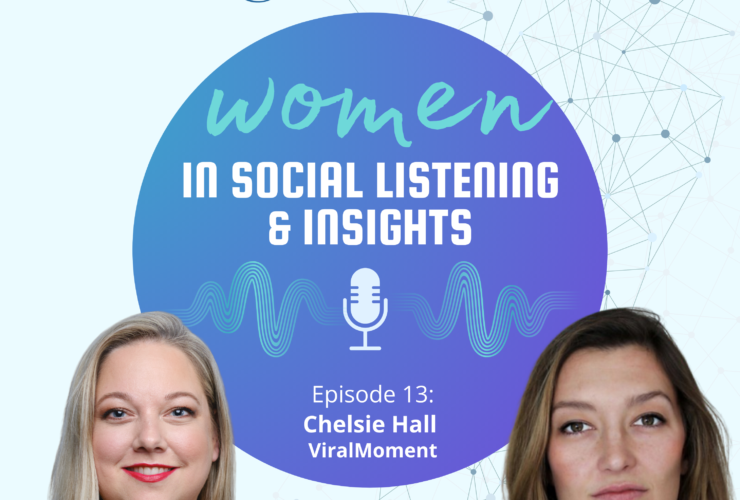Brand perception and reputation management are more important than ever in today’s economy. Last year, the announcement of Trump leaving the Paris climate agreement sent shockwaves through social media as consumers and political leaders alike condemned the move. Shortly after, more fuel was added to the fire as the news that just 100 companies are to blame for 71% of the global emissions was widely shared on Twitter and Instagram.
As consumers are becoming increasingly wary of corporations’ environmental impact, the pressure on brands to change their business practices is mounting. In fact, according to Edelman’s 2018 Trust Barometer, disheartened citizens have lost their faith in the government to lead positive change and are now taking matters into their own hands by demanding brands to clean up their green act. Furthermore, trends indicate that CEOs should invest in long-term commitment instead of focusing on short-term results. Crucially, these views are not only reflected in online channels; social media is actively shaping corporate change.
Making a difference from the bottom up
A vital tool in driving corporate change, social media helps to spread bottom-up movements and expose shortcomings to a global audience. Starbucks recently learned this lesson the hard way as one of their baristas, Jade Wilson, took to Twitter to express her view on the coffee chain’s new strawless lid. In responding to a tweet praising the new design, she claimed that the strawless version actually uses more plastic than the original and that a more sustainable solution is for customers to bring their own cups. The tweet went viral, proving the impact employees’ views can have when discussed on social media. The reaction to Wilson’s tweet caused a peak in negative sentiment around Starbucks with commentators accusing the company of being part of the global pollution problem under the campaign hashtag #bettercup.
As a Starbucks barista, let me just say this lid was made specifically for the new cold foam drinks, that’s it, it has more plastic than the other lids since it’s thicker & it’s about 3x as expensive to make, so if you really wanna save the earth bring your own reusable cups! https://t.co/FDkiTTD315
— Jade Wilson (@Jade_ember3) May 3, 2018
Indeed, according to a 2018 trend forecasting report by Hootsuite, people are becoming more vocal about their employer on social media. In reference to the immediate social reach of employees with an active online presence, the report further predicts that “by 2020 large organizations will realize that employee comments and perceptions on social will need to be managed”.
Negative sentiment towards Starbucks was also driven by complaints by the disabled community. Critics here argued that the removal of straws would make it difficult for physically impaired people to consume drinks. Caught in the firing line, Starbucks was likely unprepared for the storm around their ‘green’ initiative. The debate calling into question the various issues associated with the straw-drop forced Starbucks to publicly defend their move. In response to the criticism of the increased use of plastic to create the lid, the company said the lid will be more widely recycled than the straws. Yet this explanation proved too little, too late as the backlash against the coffee chain was already in full swing.
Nobody who is disabled should be forced to provide proof of that disability. Biodegradable plastic straws can “degrade” in the drinkers mouth, especially those with involuntary tics. We don’t hate the environment. Starbucks needs to recycle other plastics.#trustdisabledpeople
— Melissa B. (@thewritingpro) July 16, 2018
Starbucks responded by explaining the benefits of the redesign of the plastic lid.
The strawless lid is made from polypropylene, a commonly-accepted recyclable plastic that can be captured in recycling infrastructure, unlike straws which are too small and lightweight to be captured in modern recycling equipment. This is work we’ll continue to work on!
— Starbucks Coffee (@Starbucks) July 18, 2018

Turning negative perceptions around
Successfully managing real-time conversations with members of the public will become important for brands who wish to control their online reputation. Earlier this year, McDonald’s declared their aim to recycle 100% of its packaging by 2025. An ambitious yet clear target, the news was perceived positively on social media. Consumers were particularly pleased to see that the fast-food chain considered their global presence and status beneficial in achieving change on a large scale, rather than a logistical hurdle.
Yet, a small movement was disappointed in McDonald’s plans. In a Twitter campaign, this group of consumers called for the company to bring back Styrofoam cups. In response to a tweet by one of the campaign supporters, McDonald’s reiterated their green goals and that part of those was improving their packaging from an environmental point of view. For McDonald’s, engaging with and educating social media users about the organisation’s aims has proven successful in achieving positive engagement. To maintain that positivity, the company must keep working hard at continually updating consumers about the progress of reaching the 2025 target.
Hey, Kyler! A better world requires better solutions – like recycling. By 2025 our goal is to recycle 100% of guest packaging in McDonald’s restaurants across the globe. Learn more about how we’re using our #ScaleforGood: https://t.co/GwSdspkM6e pic.twitter.com/OsqXl6P74v
— McDonald’s (@McDonaldsCorp) June 22, 2018
Recently, Starbucks and McDonald’s announced that they will join forces in their search for a fully compostable cup. As no official deadline has been set, it remains to be seen how the brands will fair long-term. However, both organisations have benefitted from a positive upturn in sentiment in the short period following the announcement.
Transparent actions
As a global company regularly caught in the spotlight due to its questionable sustainability efforts, Coca-Cola faced increasing pressure from green campaigners last year when news spread that they were guilty of producing 100 billion throwaway plastic bottles every year. Coca-Cola’s pledge to recycle every bottle by 2030 has failed to counter the prevailing negative sentiment around the brand. By tweeting that Coca-Cola’s trade association “does nothing on climate and supports the US chamber, a huge enemy of climate action”, US senator for Rhode-Island, Sheldon Whitehouse, made the situation go from bad to worse.
The remark highlighted the discrepancy between Coca Cola’s public climate program and the brand’s activities in the political realm. With this perfect example of how social media can expose double standards without any filters, it’s clearly more important than ever to answer public concerns and follow through with a long-term sustainable strategy.
Coca-Cola produces an estimated 100 billion throwaway plastic bottles every year – billions of these will end up on beaches, in landfill and in the sea. That needs to stop: https://t.co/CrwXLfA8iz#EndOceanPlastics #useless #waste pic.twitter.com/9p09YI7pfD
— Mike Hudema (@MikeHudema) January 10, 2018
American news agency Associated Press announces Coca-Cola’s long-term recycling goals.
Coca-Cola announces long-term recycling goals, including plan to help collect and recycle a bottle or can for each that it sells by 2030. https://t.co/mEHpIGpYp2
— The Associated Press (@AP) January 19, 2018
US senator for Rhode Island accuses Coca Cola of double standards regarding climate action.
In Congress, Coca-Cola’s trade association does nothing on climate, but it funds the US Chamber, huge enemy of climate action. Thus, net lobbying presence on climate is opposite to stated values and position. Many other corps just the same. https://t.co/t2SdwwjRaE
— Sheldon Whitehouse (@SenWhitehouse) March 3, 2018
What does the future look like?
Reputation management will increasingly inform brand strategy in a way that goes beyond replying to disgruntled customers or ad hoc crisis management. Ongoing real-time social media monitoring offers the opportunity to not only engage with customers but also to identify opportunities for collaboration and innovation. As such, listening to the groundswell and considering suggestions online will be equally, or even more, important as collaborating with suppliers to reduce emissions.

At Convosphere we have developed a comprehensive approach that takes several elements that contribute to perceptions about your brand into account. With our global team, we’re able to analyse these insights across 50 markets in the local language. Contact us today to find out more.






